Youth for a Better World
OUR GOAL IS TO INSPIRE AND EMPOWER YOUTH
Since 2006, Youth for a Better World has been organizing
international student programs for 9–18-year-olds.
Our programs focus on:

Awakening global social consciousness by giving the opportunity to share solutions for a better world

Channeling curiosity and awareness into creative solutions for the world’s problems on the UN agenda, leveraging research skills and critical thinking

Contributing to honing soft and hard English language skills, as students develop global solutions through collaboration and cooperation

Enabling students to acquire a global perspective by interacting with peers from different countries, cultures and backgrounds, gaining a deeper appreciation of our shared humanity

Appealing to the sensitivity of students toward reason, justice and morality
Our program for 9-15 year old students – Montessori Model United Nations – focuses on awareness raising and understanding in youth of global issues. Students discover their voice in creating change. They are given a platform to create solutions to the most challenging contemporary issues.
The Youth Impact! Forum for adolescents from 13-18 years old activates the leadership potential of adolescents by educating and engaging them in purposeful and cross-cultural projects that are designed to support the Sustainable Development Goals. By offering knowledge, mentors, and guidance, the Youth Impact! Forum program fosters young people’s development into Social Change Makers.

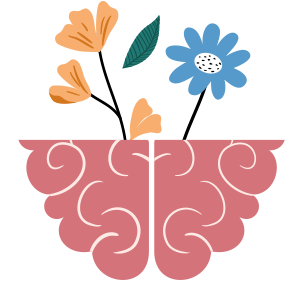
Awareness Raising
Montessori Model United Nations combines the scholarship and global citizenry of Model UN with the pedagogical insights of Maria Montessori. It is a unique opportunity for children ages 9-15 to act as the ambassadors of UN member states who work together to solve the world’s most pressing crises. Importantly, the program is based upon the cooperation of country representations in defining solutions. Montessori Model UN raises awareness in students through simulations of UN Committees. Students formulate, present, debate, and revise positions on current issues that are affecting people of the world.
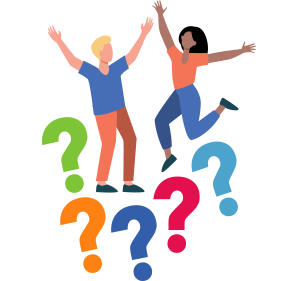
Understanding
Participants of Montessori Model UN learn how the international community acts on its concerns about topics like peace and security, human rights, the rights of the child, child labor, the environment, food and hunger, economic development, and globalization. Students learn that differences can be resolved and that consensus can be reached through thoughtful, honest communication. They come to realize that this is more productive than violence.
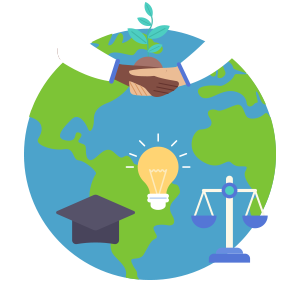
Responsibility
By assuming the perspectives of a citizen of their selected countries, MMUN students not only develop an understanding of the needs and rights of others, but also learn to respect cultures, political views, and beliefs of others.
The creation of solutions on these complex issues and drafting them into resolutions as a committee shows that student voices can be heard on the world’s most pressing issues. This engagement transforms them into a global citizen who knows that he or she can spark meaningful change in our world.
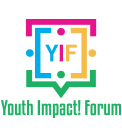
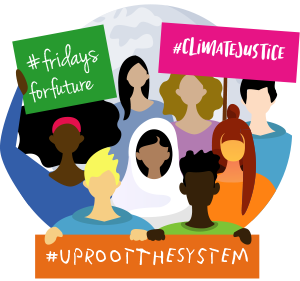
Taking Action
After participating in MMUN, students have asked how they can be more involved in global affairs in order to truly make changes in their world. At the same time, the UN has recognized the importance of youth engagement in world issues. For example, the UN has named youth as one of its primary stakeholders in the Sustainable Development Goals. Additionally, in The Report of the UN Secretary-General on Youth Development Links to Sustainable Development, the UN further underlines this value: “Young people are recognized as agents of change, entrusted with fulfilling their own potential and ensuring a world fit for future generations”.
In response to the growing need for youth involvement in contemporary global issues, MMUN has developed the Youth Impact! Forum (YIF) to provide tools for youth to make their inspirations a reality.
The Youth Impact! Forum is implemented by teachers as an immersive experience for students 13-18 years of age. Students work together to design robust, feasible projects based on their own action plans for constructing a more sustainable world. These projects are dedicated to improving their community locally, regionally, or globally for the benefit of current and future generations.
Youth Impact! Forum (YIF) is a platform which empowers youth by providing the tools to make a difference, thus mobilizing them as agents of impactful change. YIF works by harnessing the creativity, idealism and energy of young people for local and global impact. In alignment with the UN’s Sustainable Development Goals, YIF focuses on the environmental and social justice dimensions of the SDGs.

YFBW also helps achieve the SDGs through global partnerships. Through these partnerships, we have donated the following to developing and emerging nations in the last few years: 20,000 solar light bulbs, 25,000 basketballs, 100 computers, and we are on track to donating more.
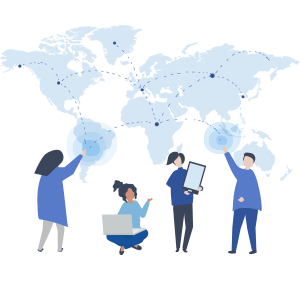
Teaching about Global Citizenship
At the same time, our Academic Team begins with a myriad of activity. In addition to determining the topics for Background Guides and generating their content, they manage the process of training students for Bureau participation and training teachers how to introduce MMUN and Global Citizenship into their classrooms. They do this pretty much all over the world.
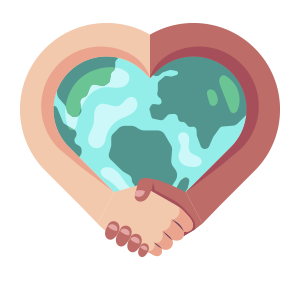
Sponsoring Underserved schools
While they are doing that, the Team also coordinates with schools that want to sponsor underserved schools so that they, too, can enjoy the benefits of MMUN. For those situations, MMUN provides scholarships and supportive funding. Students from Malawi and Kenya are recent beneficiaries, and we are currently working to help students in South Sudan, Ethiopia and more students in Malawi and Kenya. In this regard, our UN Relations Team also helps by working with the government Missions to
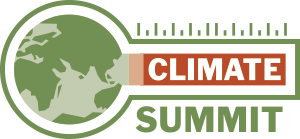
ANTHROPOCENE:
Where do I fit into the Climate Crisis?
June 23rd, 24th, 30th and July 1st, 2022
11 AM – 2 PM ET
The Anthropocene Epoch is the new name for a new geologic epoch defined by our human massive impact on the planet’s climate and ecosystems. Named by two scientists Dutch chemist Paul Crutzen and American biologist Eugene Stormer with the purpose is to “focus our attention on the consequences of our collective human action—and on how we might still avert the worst.”
This professional development course* is designed to answer these questions:· What is the science behind the Climate Emergency?
- How does this Climate Emergency impact our planet and the entire biome?
- How was this emergency created and who is most vulnerable to its affects?
- What can we do as individuals in our communities and collectively to address this emergency?
- How can I implement climate awareness and action into my classroom?
- What is the good news about change to mitigate and address the Climate Emergency?
*Certified by Loyola University for 12 CEU, Continuing Education Units.
Our goal is to make accessing climate change education easy for you and your students and to empower them with the scientific facts and resources to make a difference.We will provide a companion guide for the main topics in each session to assist teachers in implementing and understanding this important work.
Each companion guide will include:
- Climate Documents
- Essential Questions
- Background
- Images
- Statistics
- Case Studies
- Student Activity List
- Seminar Questions
- Resource Guides
- Impactful projects and organizations
Our program, anchored in the principles of dr. Maria Montessori, is open to all types of schools and programs, and easily integrates with other pedagogical frameworks.
dr. Maria Montessori strongly supported the league of Nations and its successor, the United Nations. She recognized this body as a venue for nations to come together to create and sustain peace. Early on, she believed that the hope for continued peace lies in the education of children and youth.
Our program recognizes student development and supports the social, emotional and cognitive growth of young people. More importantly it reflects the key principles of collaboration, consensus, and interdependence for good citizenship.
“If we are proactive in giving children the opportunity to be heard and validated at the earliest stage of their development, they will grow up with the skills and values needed to leave indelible marks upon the world.”
Maria Montessori

